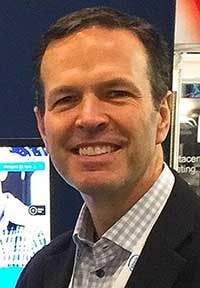Executive Insights: Jeff Klaus from Intel Software
The Data Center Frontier Executive Roundtable features insights from industry executives with lengthy experience in the data center industry. Here’s a look at the insights from Jeff Klaus of Intel.
JEFF KLAUS, Intel
As General Manager of Intel Data Center Software Solutions, Jeff Klaus leads a global team that designs, builds, sells and supports Intel DCM, the only software that provides real-time, server-level data on the power and thermal conditions across a wide range of data center servers and other equipment. Provided as an SDK, Intel DCM middleware is integrated into Data Center Infrastructure Management (DCIM) consoles to increase data center power and thermal efficiency.
Since joining Intel in 2000, Klaus’ accomplishments have been recognized by multiple division awards. With a broad background in software solutions for the channel, client and SMB space, he has served as Director of Media Programs within Intel’s Digital Home Group, Entertainment Content Marketing Manager, Business Operations Manager, and Software Marketing Manager.
An accomplished speaker, Klaus has presented at such industry forums as Gartner Data Center Summit, AFCOM’s Data Center World, the Green IT Symposium, and the Green Gov conference. He has authored articles on data center power management in Data Center Post, IT Business Edge, Data Center Knowledge, Information Management and Data Centre Management. Klaus currently serves on the Board of Directors for the Green IT Council. Klaus earned his BS in Finance at Boston College and his MBA in Marketing at Boston University.
Here’s the full text of Jeff Klaus’ insights from our Executive Roundtable:
Data Center Frontier: What is the one trend you believe will be most significant in shaping the data center industry in 2019, and why?
Jeff Klaus: Artificial intelligence and its role in data center optimization. Data Center management requires a lot of process work, but the data collection and analysis has been an area where we have had less than stellar growth. I think that will be seen as a gap as IT professionals start seeing how others areas continue to leverage data sciences.
Data Center Frontier: As the data center industry continues to grow, finding and developing staff is a challenge. What are the key steps to ensuring quality staffing into the future? What’s the appropriate role of automation (and even AI) in scaling?
Jeff Klaus: I see more surveys from data center managers where they value data science skills (especially identifying and analyzing trends) they see extremely valuable in the future. I think that plays well with other data center opportunities such as automation and security.
Data Center Frontier: Data center geography continues to be a hot topic. What markets will be strongest in 2019, and why? What are the up-and-coming markets that may make headlines in 2019?
Jeff Klaus: It’s all about latency and environmental advantages. There are other things such as governmental incentives / requirements, or HR dependencies that dictate specific outcomes, but for most things I see the same 2018 desirable areas being the desirable areas in 2019.
Data Center Frontier: Security remains a priority for customers. How are security issues being considered in the data center design and product offerings for service providers? Will this change in 2019?
Jeff Klaus: No change in the broad methodologies used. I think the changes will remain in materials chosen in data center construction. For example edge data centers will still need all the usual elements / requirements addressed, but they will have to fit within the smaller footprint and could also face requirements like being portable.
